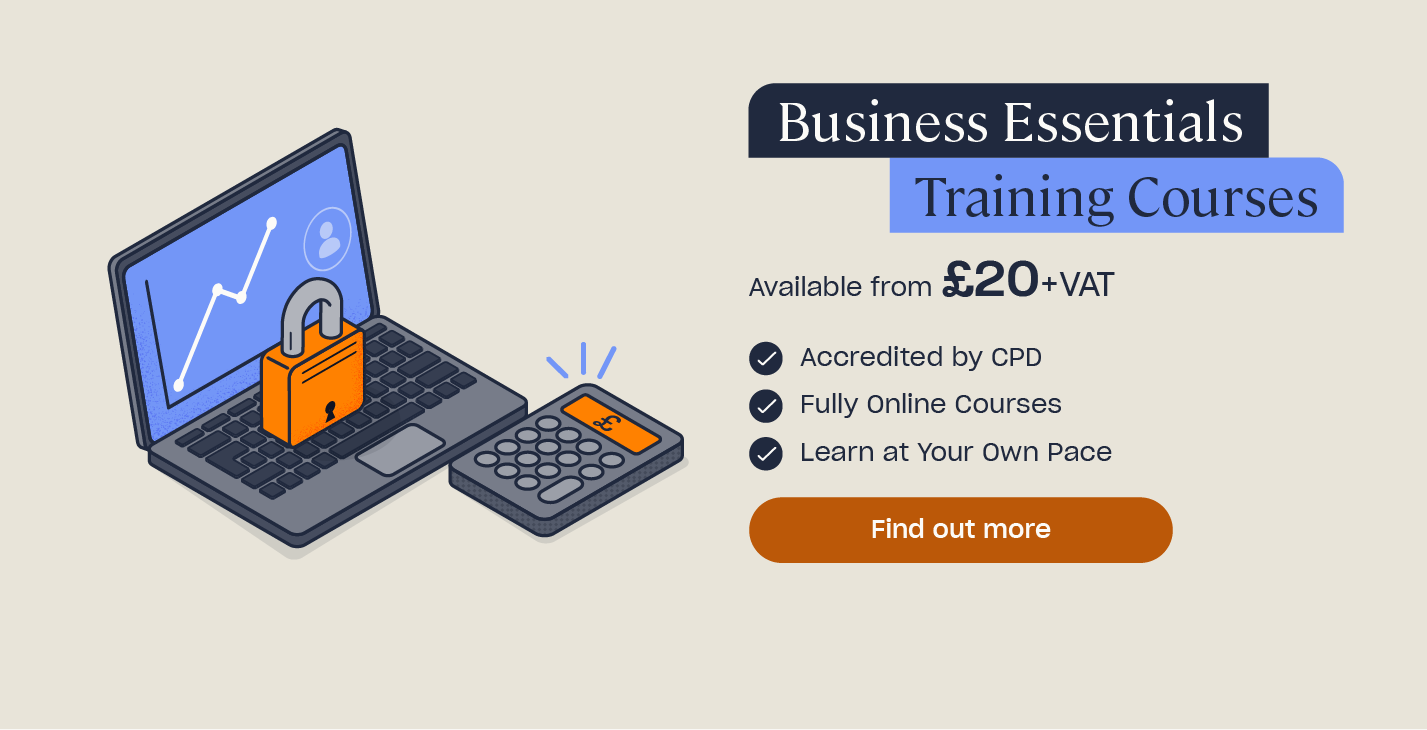How to be Productive at Work: Guidance for Employees
Productivity in the workplace is defined as efficiently completing tasks or achieving goals without compromising either the quality of the work or your physical or mental wellbeing. Through learning how to make the right choices daily, you can increase your efficiency and work more effectively. It’s crucial that every employee understands how to be productive at work.
In this article, we will look at why productivity is important at work, both for employees and the business they work for. We’ll then examine ways you can be productive at work, and include tips on increasing productivity. We’ll also look at how you can ensure productivity when working from home, which presents its own challenges and obstacles.
Why is Productivity Important at Work?
Put simply, productivity involves avoiding distractions and meeting deadlines. As such, it’s essential to be productive at work, in order to achieve what’s required of you and your role.
Regardless of the sector or industry you work in, there will be targets, goals or tasks that need to be completed and there is usually a deadline involved in these – whether that is a task that’s required to be completed every day, or a long-term project. It’s difficult to meet these deadlines without having a clear idea of what you need to do, and by when. Being productive means you’re making the most of your time at work in order to ensure these needs are met.
These days, there’s been an increased focus on work-life balance, too, and it’s never been more important to make sure that you allow for this balance. Having a healthy work-life balance is a great way of maintaining your physical and mental wellbeing, too, as it prevents you worrying about your job outside of your work hours. However, this means that the time you spend working should be made as productive as possible to avoid work seeping into your personal life and upsetting the work-life balance.

There is also a clear link between productivity and success. Everyone has a different definition of success; but no matter what success looks like to you personally, you will need a plan or system in place to achieve your goals. Thus, in order to be successful, being productive is essential.
This doesn’t just apply to a work setting, either. Productivity is needed to be successful in any aspect of life. This could include things such as planning an event, saving money for a goal, or having a to-do list of tasks that need doing around your house on a weekend. Without being productive and using your time effectively, it’s difficult to achieve these things.
How to be Productive at Work
It’s important to recognise your motivations – we’ve outlined some benefits of being productive at work above, but, why do you want to be productive at work? Thinking about your motivators will help to focus your mind on the tasks at hand. Likewise, understanding what helps and hinders your productivity is crucial.
There are a number of methods you can use that can help you be productive at work, and we’ve collated a few of these below.
Stop multitasking
Something that can hinder productivity is multitasking. It can be tempting to try and take care of a few tasks at once – especially if they seem simple or easy – however, you run the risk of starting a number of different things and not finishing any of them, thus resulting in a less than productive day.
By focusing on one task at a time, you can ensure that it is complete before you start the next one. You also get the benefit of ticking off tasks as complete throughout the day, and this satisfaction of a task completed can be a great motivator when moving onto the next one.
Take regular breaks
This might sound counterproductive, but if you can feel your progress slowing down or you are struggling to complete a certain task, sometimes the best thing you can do is step away from the problem for a short while. This isn’t just applicable to office work, either, where you can leave your desk – this applies to any task in any setting.
Taking five minutes away from the situation to reset allows you to return with a clearer head. This can help you to see the solution to a problem more clearly and therefore increases the chance of you completing it, making your day more productive.

Set small goals
Sometimes, having a heavy workload or a high number of tasks that need to be completed can be daunting and if you feel overwhelmed, you’re unlikely to be productive.
Setting small, achievable goals rather than viewing your tasks as a whole can help you focus. This also has the benefit of reward by achievement, ticking off your smaller goals as they are easier to complete can be rewarding, and before you know it, you’ll be making progress towards the larger goal.
Adhere to the ‘two-minute rule’
In his book ‘Getting Things Done’, David Allen coined the ‘two-minute rule’ in order to help people to be more productive. The rule states that any task that can be completed within two-minutes should be completed as soon as it arises.
His theory suggests that by avoiding delaying these small two-minute tasks, you’re also avoiding procrastination and are therefore being more productive.
Need a Course?
At High Speed Training, we offer a range of Business Essentials training courses that can help you develop the skills you need to be successful, including productivity. This includes Resilience Training, Communication Skills Training and Time Management Training.
How to Increase Productivity
Sometimes, no matter how hard you try to be productive and make the most of your time at work, it becomes a challenge. Then, you need to work out how to increase your productivity and avoid procrastinating and there are a number of ways that you can do this.
We have listed some of these, which you may find helpful, below.
Write a to-do list
Writing a to-do list is a useful way of planning out your day and it also keeps you accountable for the tasks you need to do. A to-do list can also help you to prioritise your tasks, and decide which order you will tackle them in. Some may have a specific timeline – by lunchtime, for example – and therefore need to be completed first. Others may be easier or more enjoyable, and therefore you want to end the day with them.
You may want to take care of the biggest or most important task when you’re most alert. Ask yourself whether you have a more productive time of day, when you seem to get the most amount of work done, or when it is easier for you to concentrate – for some people, this may be first thing in the morning.

Eliminate distractions
Distractions are the enemy of productivity. Anything that takes your attention away from the task at hand damages your efficiency and increases the time it takes you to complete a task. Distractions can come in any number of forms, including social media and other people, and they usually represent things we’d rather do, or people we’d rather speak to, than the task at hand.
Eliminating these distractions is the only way to ensure productivity. You can do this by removing yourself from a social situation or place that has too many temptations. For example, taking yourself off to a quiet room or turning your phone off until you’ve completed your task. If need be, you can also set yourself as ‘busy’ or ‘away’ on work chat software in order to fully concentrate. You can also mute your email notifications, or set aside a particular time of day that you dedicate to reading and replying to them.
Some people find it useful to listen to music or a podcast while they work, in order to drown out any potential distractions and keep themselves focused although others may find what they’re listening to becomes a distraction in itself.
Use helpful software
Although this may not be applicable to every job, if you struggle with how to be productive at work, there are a number of tools and software you can use to help with this.
Monday.com is one example. This program helps you to assign tasks, set deadlines and you can easily track the time spent on specific tasks and projects. Using this information, it can help you to manage your time more efficiently and be as productive as possible.

Communicate with your manager
Regardless of your role or the industry you work in, if you are someone that is prone to procrastination and struggle to keep your productivity high, it’s important to communicate with your manager or supervisor. This provides an opportunity for them to support and help, and they will have their own ideas as to how to increase your individual productivity.
If you are a manager yourself, read our article: “How to Increase Workplace Productivity” to learn more about motivating your team.
How to be Productive When Working From Home
Over the past couple of years, many organisations have chosen to implement hybrid working, meaning there is a large proportion of the workforce that operate from home. Some companies have even introduced remote working full time, meaning that more people are working from home than ever before. You can also check out our article on the benefits and challenges of working from home, here.
The tips we provided earlier in the article are all still relevant and applicable to people who work from home – however, some are even more important to follow than for those working in an office full-time.
For example, it can be more challenging to stay productive and motivated as the temptations and distractions are greater when working from home. Being in your own environment, surrounded by your own possessions, space, and even people, can make it more difficult to concentrate and remain on track with your tasks.

One way you can combat this is by making sure you have a designated working space. This could be a home office, a desk in the corner of the room, or the dining room table. Wherever it is, having a designated space can help you to differentiate between ‘work’ and ‘home’, even if the two aspects of life share the same space.
It’s also essential that you communicate effectively with your manager and colleagues if you work from home. Keeping in regular contact when collaborating on a project, for example, or to inform your manager of the tasks you’re working on for accountability can all help to increase your productivity. This could be in the form of a phone call, video call, or written communication such as email or a software program such as Slack. Take our free quiz to see how good your communication skills are.
We hope you’ve enjoyed this article on how to be productive at work, and that you’ve found the tips and advice useful. If you have any further questions, or wish to find out more information on the topics covered in this article, call a member of our friendly support team on 0333 006 7000.
Further Resources:
- Communication Skills Training
- How to Promote Inclusive Communication in the Workplace
- Time Management Training
- What is Active Listening in Communication?
- Rest Breaks at Work: What are the Requirements?
- Writing A Professional Development Plan – Example & Template







